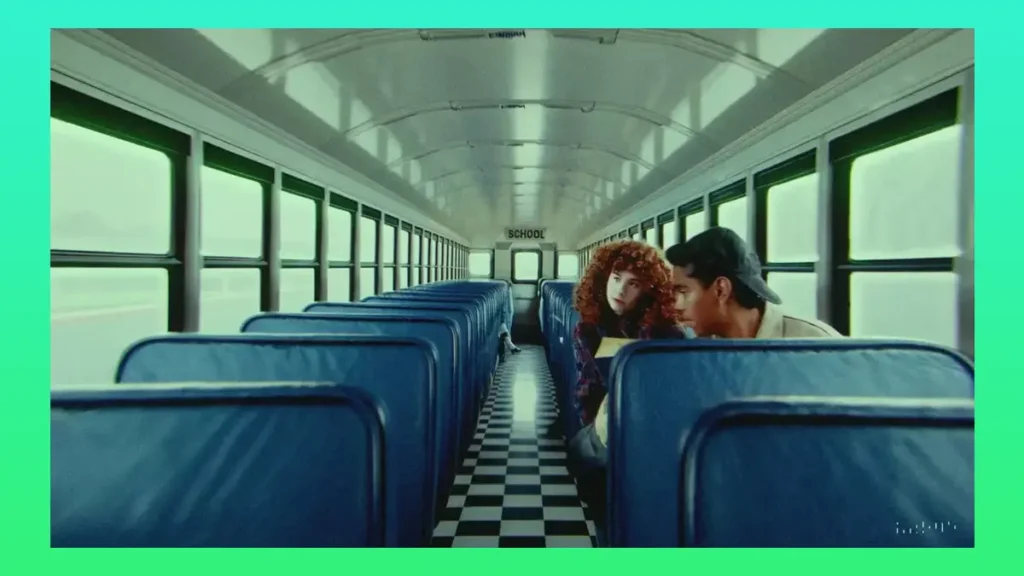The first music video made with a special tool called OpenAI Sora is out now, and it’s like a beautiful dream. It’s on YouTube and was made for Washed Out, a chillwave musician. Lasting four minutes, the video shows quick zooms through different scenes, making it feel like a never-ending journey.
A guy named Paul Trillo made it, and he got to use Sora early in March. He says it’s the first real music video made with Sora. Paul used 55 different clips to make the video, and when asked if he spent a lot of time editing, he said he only made some small changes to make it perfect.
World’s First Commissioned Music Video is Out
The world’s first commissioned music video created entirely through OpenAI’s Sora, titled ‘The Hardest Part’ and directed by Paul Trillo, has been released. This debut coincides with OpenAI’s pitch of Sora to Hollywood and other entertainment giants, with arranged meetings in Los Angeles aimed at forging partnerships and encouraging filmmakers to integrate Sora into their creative processes.
First official commissioned music video made with @OpenAI Sora for @realwashedout
This was an idea I had almost 10 years ago and then abandoned. Finally was able to bring it to life.
Watch the full video here https://t.co/sGpmMLVCul pic.twitter.com/J3RxRD9nzo
— Paul Trillo (@paultrillo) May 2, 2024
Additionally, OpenAI showcased Sora’s capabilities in a blog post featuring new Sora-generated videos from various visual artists and directors alongside impressions of the technology.
Insights on Sora-Generated Music Video
The director revealed that the music video comprises 55 clips stitched together for its premiere, with only minor touch-ups made during editing. Trillo expressed his long-standing idea for the project, which he finally brought to life. While he claims to have created the first Sora-generated music video, OpenAI’s model was previously used for a video clip accompanying an ambient track by indie musician August Kamp. However, the rise of AI models capable of generating images, audio, and video has raised concerns among creators, who fear for their livelihoods. Last month, over 200 musicians, including Billie Eilish and Nicki Minaj, signed an open letter urging AI developers and tech companies to stop using AI to undermine and devalue the rights of human artists.
Insights from OpenAI’s Chief Technology Officer
Sora, OpenAI’s upcoming text-to-video generator, is anticipated to launch later this year, with a possible release within a few months, according to OpenAI’s chief technology officer, Mira Murati. However, Murati refrained from discussing the specific data Sora was trained on. She mentioned that the data used was either publicly available or licensed but avoided providing further details. Murati faced criticism for uncertainty regarding whether Sora utilized videos from platforms like YouTube, Facebook, or Instagram. Nevertheless, she confirmed that Sora incorporates content from Shutterstock through OpenAI’s partnership with the platform.
Murati highlighted that generating videos with Sora could take a few minutes, depending on the complexity of the prompt, and emphasized that it would be significantly more expensive than previous models. Despite uncertainty about its final appearance, Murati expressed intentions to eventually offer Sora at a comparable cost to OpenAI’s previous model, DALL-E.
OpenAI Faces Copyright Lawsuits Amidst Sora’s Development
OpenAI, the organization behind Sora, is dealing with multiple lawsuits for copyright infringement. Notable figures like comedian Sarah Silverman and authors George R. R. Martin, John Grisham, and Jodi Picoult, along with the New York Times, have filed lawsuits against the company.
Despite its capabilities, Sora has not been released to the public yet. OpenAI states that the model is undergoing rigorous testing by a team of experts to identify and address any potential weaknesses.
Also Read:
Godrej Group’s Division: A 127-Year Legacy from Start to Success
National Highways Authority of India Set to Transform Indian Highways with Helipads and Drone Zones
Google Rejects 2.28 Million Apps for Google Play Store Policy Violations in Past Year

